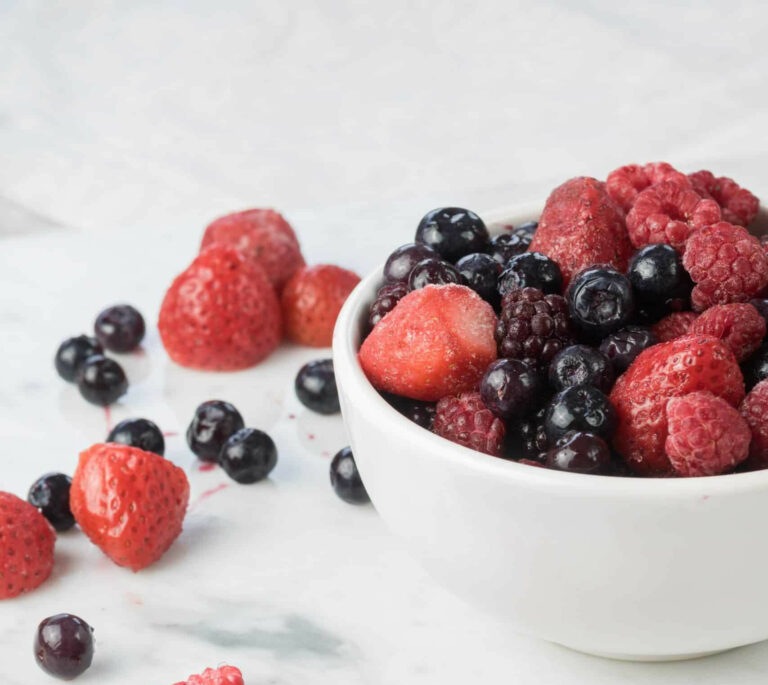No Whey: Whole Foods vs Whey Protein
We are often bombarded with conflicting information. One of the most debated topics is the comparison between whole foods and whey protein supplements. Bro-science, a term coined for anecdotal evidence often spread in gyms, suggests that whey protein can replace meals and is the key to rapid muscle growth. But, real science provides a more nuanced perspective. This article delves into the argument of whole foods vs. whey protein, debunking bro-science and providing a balanced view based on scientific evidence.
Whole Foods: The Bedrock of Nutrition
Whole foods refer to foods that are unprocessed and unrefined, or processed and refined as little as possible before being consumed. They typically do not contain added ingredients such as sugars, salts, fats, or artificial substances. Examples include fruits, vegetables, whole grains, lean meats, and dairy products.
The science-backed benefits of whole foods are numerous. Whole foods provide a wide range of nutrients—vitamins, minerals, fiber, and antioxidants—that are essential for the body’s overall health (Liu, 2003)[1]. They contain complex carbohydrates, which are slowly digested and provide sustained energy, unlike simple sugars that cause rapid spikes and crashes in blood sugar levels (Ludwig, 2002)[2]. Furthermore, whole foods are rich in dietary fiber, which aids digestion, enhances satiety, and has been linked to lower risks of heart disease and type 2 diabetes (Anderson et al., 2009)[3].
Whey Protein: The Supplement, Not the Substitute
Whey protein, on the other hand, is a by-product of cheese production and is commonly consumed as a protein supplement. It’s hailed in the fitness world for its high-quality protein content, boasting all nine essential amino acids, and its ability to be rapidly digested and absorbed (Hoffman & Falvo, 2004)[4].
Whey protein has been shown to stimulate muscle protein synthesis (MPS), which is crucial for muscle growth and recovery post-workout (Tipton et al., 2007)[5]. Its high leucine content—an essential amino acid—is particularly beneficial for triggering MPS (Norton & Layman, 2006)[6].
However, it’s important to emphasize that whey protein is a supplement, not a substitute for whole foods. While it provides high-quality protein, it lacks the diversity of nutrients found in whole foods. Moreover, over-reliance on whey protein could potentially lead to nutrient deficiencies and may also cause digestive issues in individuals sensitive to lactose, a sugar found in whey (Savaiano, 2014)[7].
The Middle Ground: Balance and Moderation
Science suggests that both whole foods and whey protein have their place in a balanced diet, especially for those engaged in regular physical activity. Whole foods should form the foundation of the diet, providing a broad spectrum of nutrients necessary for overall health and well-being. They should be the primary source of macronutrients—carbohydrates, proteins, and fats—as well as micronutrients.
Whey protein, when used appropriately, can complement a balanced diet, particularly in situations where convenience, rapid absorption, and high-quality protein are needed. It can be especially useful for athletes or individuals with high protein needs who may struggle to meet their requirements through whole foods alone (Phillips, 2012)[8].
The key is moderation and understanding that supplements are just that—supplements to a balanced diet, not substitutes. This perspective aligns with the American Dietetic Association’s position that, while certain dietary supplements can benefit some individuals, they cannot replace a balanced, nutrient-rich diet (Rodriquez et al., 2009)[9].
Debunking the Bro-Science: A Critical Look
Now, let’s debunk some of the bro-science around whey protein and whole foods.
Bro-Science Myth 1: Whey Protein is Superior to Whole Foods for Muscle Growth
While whey protein is indeed an excellent source of protein and can promote muscle protein synthesis, the notion that it is superior to whole foods is oversimplified. Whole foods not only provide protein but also supply other key nutrients required for muscle growth, including carbohydrates for energy and various micronutrients involved in muscle function and recovery. For example, the vitamin C in fruits can aid collagen synthesis, a key component of muscle tissue, and the iron in lean meats can support oxygen transport to working muscles (Heaton, 2002)[10].
Bro-Science Myth 2: Whey Protein Can Replace Meals
Whey protein is a supplement and should not be used as a meal replacement on a regular basis. While it can provide a quick and convenient source of protein, it lacks the variety of nutrients found in a balanced meal. Regularly skipping meals in favor of whey protein can lead to nutrient deficiencies and may negatively impact overall health and performance (Benton & Young, 2017)[11].
Embrace Balance, Dispel Myths
The debate of whole foods vs. whey protein isn’t a binary one. It’s about balance, not replacement. Whole foods should be the cornerstone of a healthy diet, providing a wide range of nutrients crucial for overall health and well-being. Whey protein, on the other hand, can complement a balanced diet, providing a convenient, high-quality source of protein to support muscle growth and recovery.
It’s time to dispel the bro-science myths and embrace a balanced, evidence-based approach to nutrition. By doing so, we can make informed dietary choices that support not only our fitness goals but also our long-term health.
One size doesn’t fit all when it comes to nutrition. Different individuals have different nutritional needs and preferences, and these should guide their food and supplement choices. Some people may find that they can meet their protein requirements through whole foods alone, while others, particularly athletes or those with high protein needs, may benefit from whey protein supplementation (Jäger et al., 2017)[12].
When deciding between whole foods and whey protein, consider factors such as your individual nutritional needs, dietary preferences, lifestyle, and health goals. For instance, vegetarians or vegans, who may struggle to get enough protein from plant-based foods, might find a plant-based protein powder beneficial. Likewise, individuals with busy lifestyles might find whey protein a convenient way to meet their protein needs on the go.
However, it’s essential to remember that supplements like whey protein should not replace a balanced diet but complement it. If you’re considering adding a dietary supplement to your routine, it’s always best to consult a healthcare provider or a registered dietitian to ensure it aligns with your health needs and goals (Thomas et al., 2016)[13].
Final Thoughts: Whole Foods and Whey Protein in Harmony
The whole foods vs. whey protein debate need not be a contentious one. Each has its place in a well-balanced diet. The scientific consensus is clear: a diet rich in whole foods provides an array of health benefits and should form the bedrock of our nutritional intake. Meanwhile, whey protein serves as a valuable supplement, providing high-quality protein that can support muscle growth and recovery, especially for those with higher protein needs.
The key takeaway is this: nutrition is not about isolating one food group or nutrient over another. It’s about balance, diversity, and moderation. It’s about making informed choices based on sound scientific evidence rather than catchy bro-science myths. By doing so, we can support not only our fitness goals but our overall health and well-being.
In the end, the goal is not to pit whole foods against whey protein, but to understand how they can work in harmony to support our nutritional needs and health goals.
References
- Liu, R. H. (2003). Health benefits of fruit and vegetables are from additive and synergistic combinations of phytochemicals. The American journal of clinical nutrition, 78(3), 517S-520S.
- Ludwig, D. S. (2002). The glycemic index: physiological mechanisms relating to obesity, diabetes, and cardiovascular disease. Jama, 287(18), 2414-2423.
- Anderson, J. W., Baird, P., Davis Jr, R. H., Ferreri, S., Knudtson, M., Koraym, A., … & Williams, C. L. (2009). Health benefits of dietary fiber. Nutrition reviews, 67(4), 188-205.
- Hoffman, J. R., & Falvo, M. J. (2004). Protein–Which is best?. Journal of sports science & medicine, 3(3), 118.
- Tipton, K. D., Elliott, T. A., Cree, M. G., Wolf, S. E., Sanford, A. P., & Wolfe, R. R. (2007). Ingestion of casein and whey proteins result in muscle anabolism after resistance exercise. Medicine & Science in Sports & Exercise, 39(12), 2073-2081.
- Norton, L. E., & Layman, D. K. (2006). Leucine regulates translation initiation of protein synthesis in skeletal muscle after exercise. The Journal of nutrition, 136(2), 533S-537S.
- Savaiano, D. A. (2014). Lactose digestion from yogurt: mechanism and relevance. The American journal of clinical nutrition, 99(5), 1251S-1255S.
- Phillips, S. M. (2012). Dietary protein requirements and adaptive advantages in athletes. British Journal of Nutrition, 108(S2), S158-S167.
- Rodriquez, N. R., Di Marco, N. M., & Langley, S. (2009). American Dietetic Association, Dietitians of Canada, and the American College of Sports Medicine: Nutrition and athletic performance. Journal of the American Dietetic Association, 109(3), 509-527.
- Heaton, L. E., Davis, J. K., Rawson, E. S., Nuccio, R. P., Witard, O. C., Stein, K. W., … & Baker, L. B. (2017). Selected in-season nutritional strategies to enhance recovery for team sport athletes: a practical overview. Sports Medicine, 47(11), 2201-2218.
- Benton, D., & Young, H. A. (2017). Reducing calorie intake may not help you lose body weight. Perspectives on Psychological Science, 12(5), 703-714.
- Jäger, R., Kerksick, C. M., Campbell, B. I., Cribb, P. J., Wells, S. D., Skwiat, T. M., … & Smith-Ryan, A. E. (2017). International society of sports nutrition position stand: protein and exercise. Journal of the International Society of Sports Nutrition, 14(1), 20.
- Thomas, D. T., Erdman, K. A., & Burke, L. M. (2016). American College of Sports Medicine joint position statement. Nutrition and athletic performance. Medicine and science in sports and exercise








